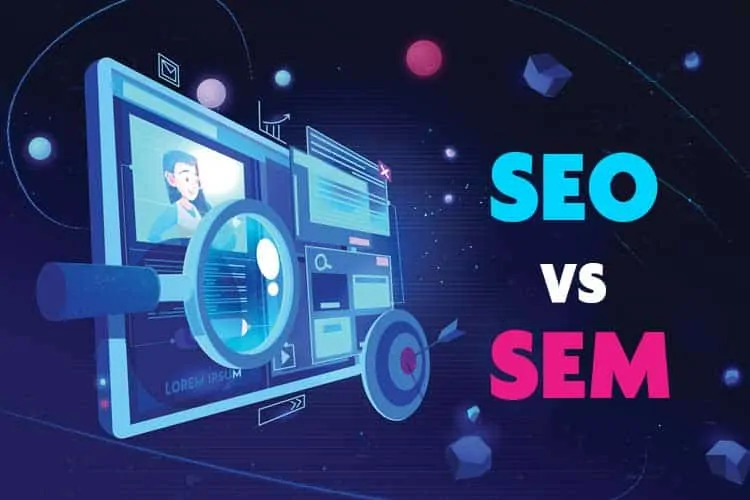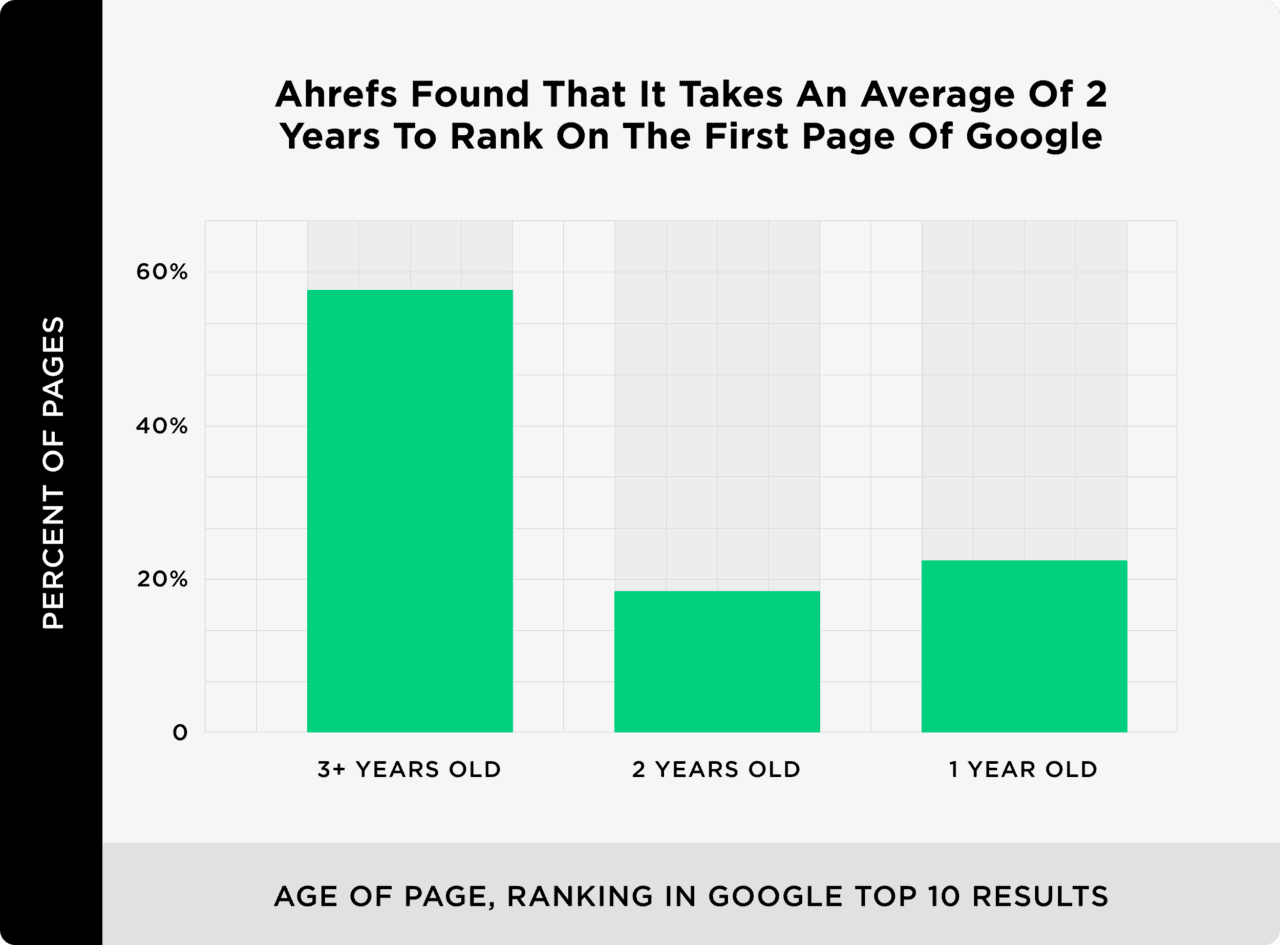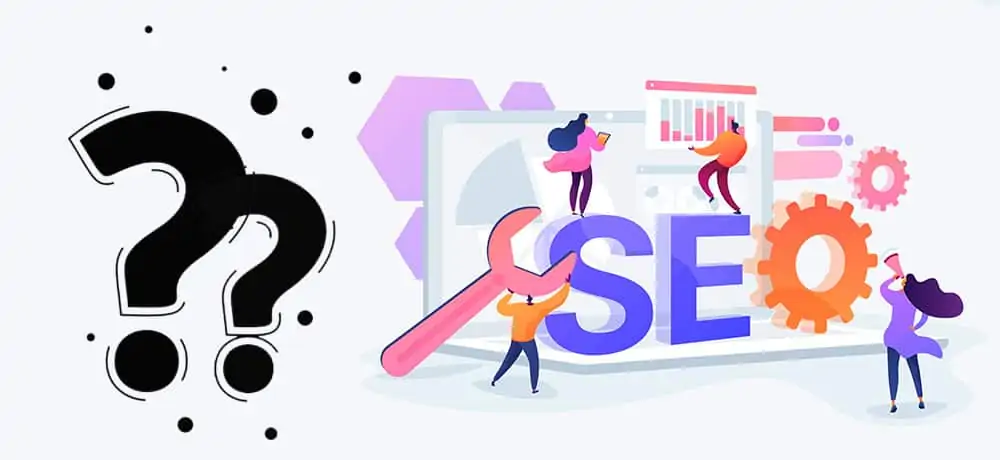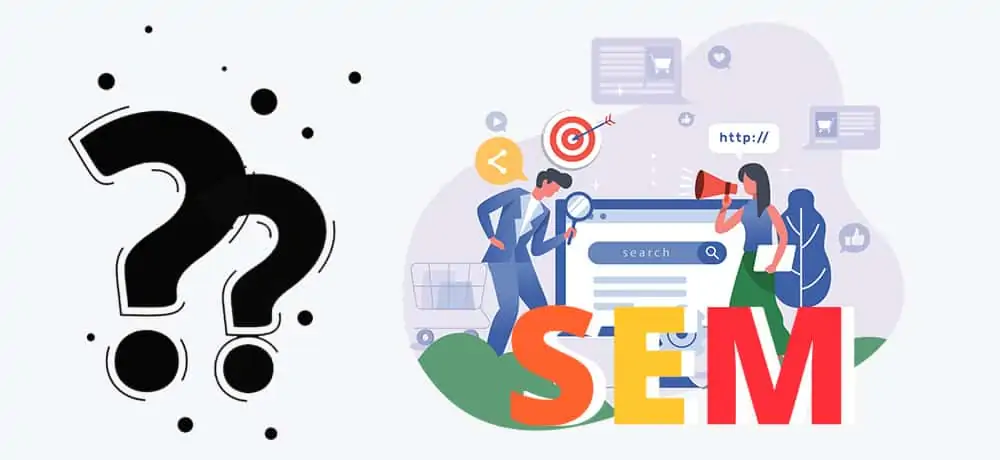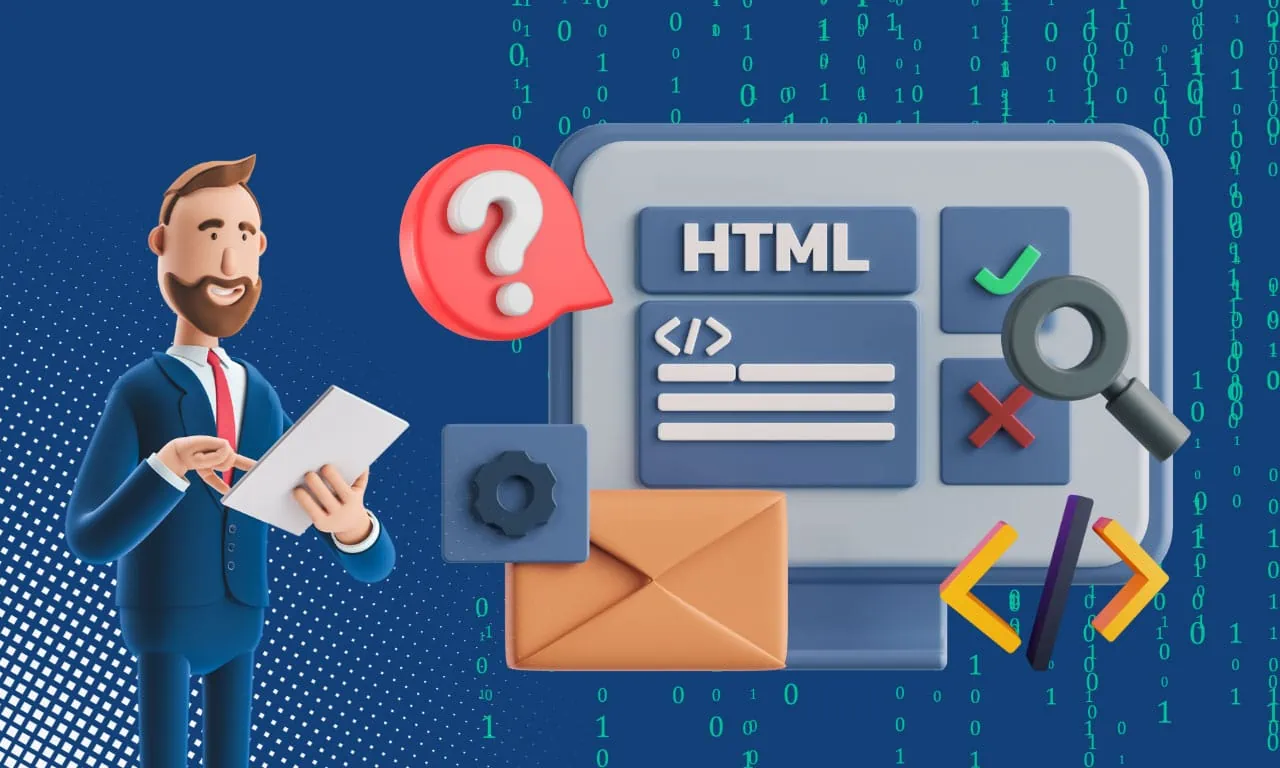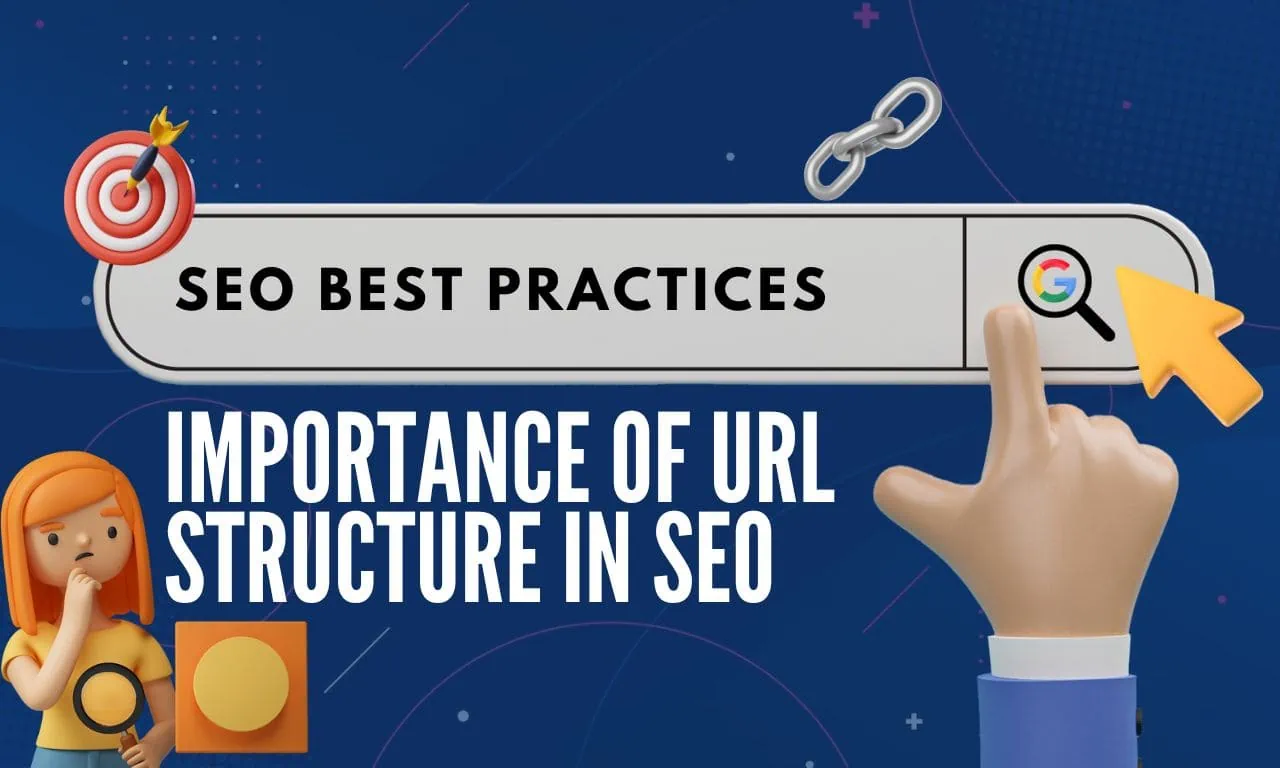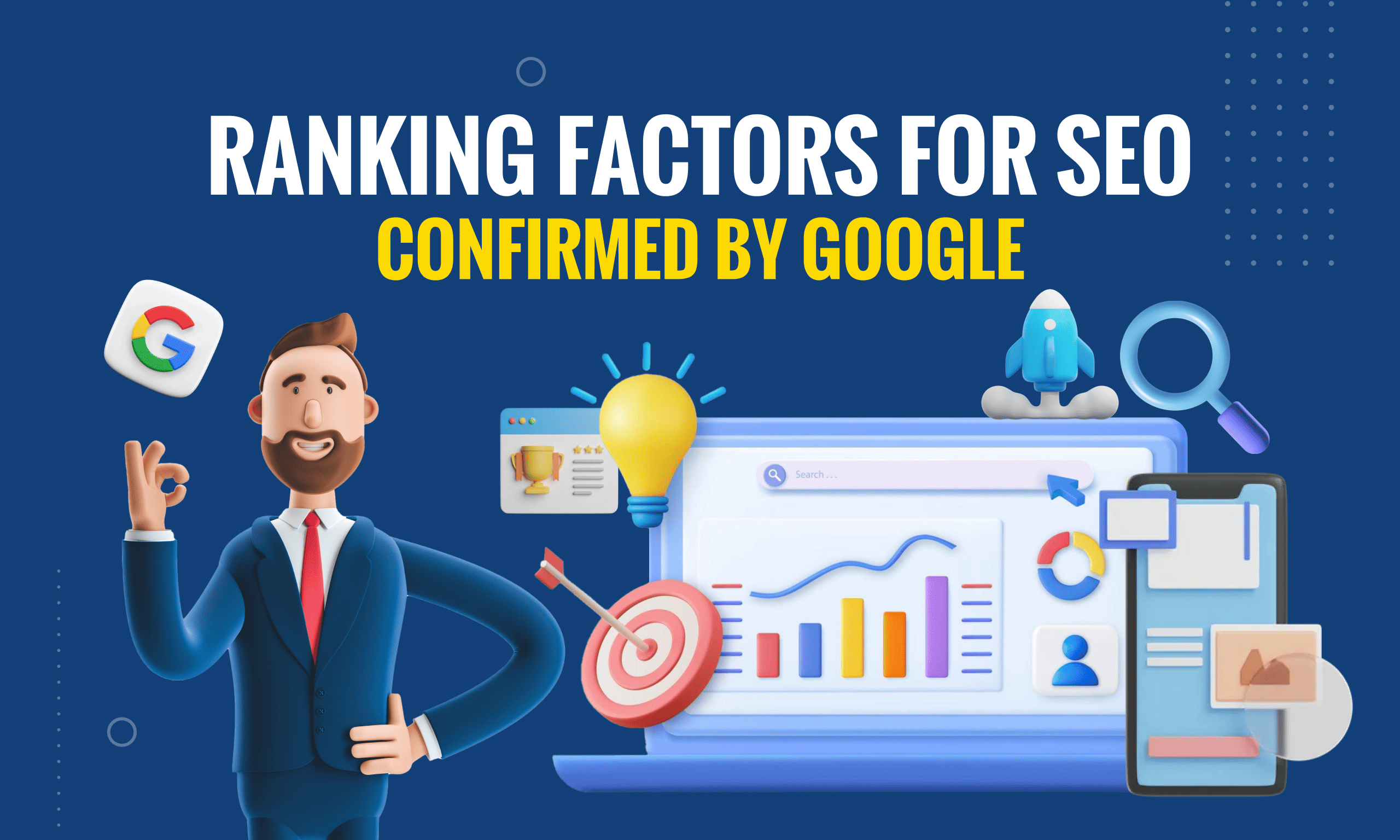SEO vs SEM, which should you use? The answer to that is both SEO & SEM as it gives you the best of both channels. But let's take a look at a closer examination on the what is definition of each of those 2 terms.
SEO (search engine optimization) is about optimizing the website to appear in organic search results for different search queries while SEM (search engine marketing) stands for the promotion of websites by increasing their visibility in the search engine through keyword bidding.
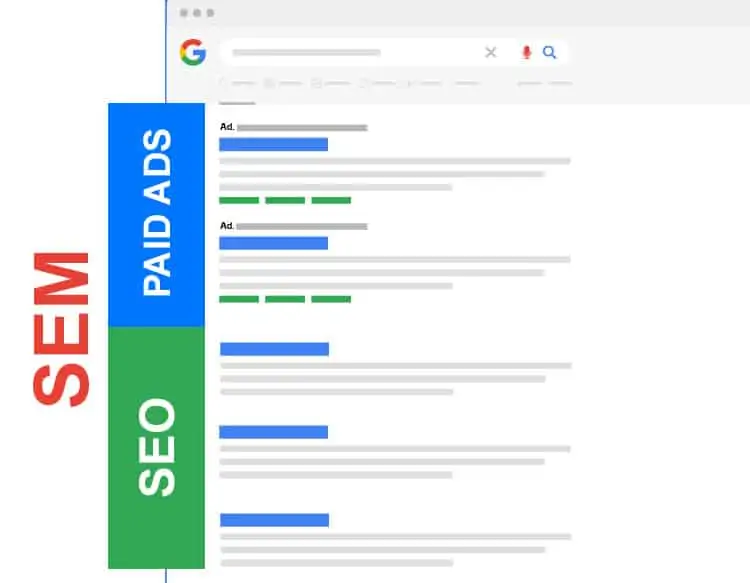
Thus, if we interpret via these definitions. SEO is a subset of SEM as it involved does help increase the visibility in search engine - where there is also paid search ads. (or commonly referred to as PPC)
The Right Definition of SEO & SEM
But over time, the industry has adopted SEM to just solely refer to paid ads instead especially in the Singapore context. So now that we have clear up all the confusion when someone refers to SEO, they are referring to organic search results whereas SEM will be for the paid search ads portion.
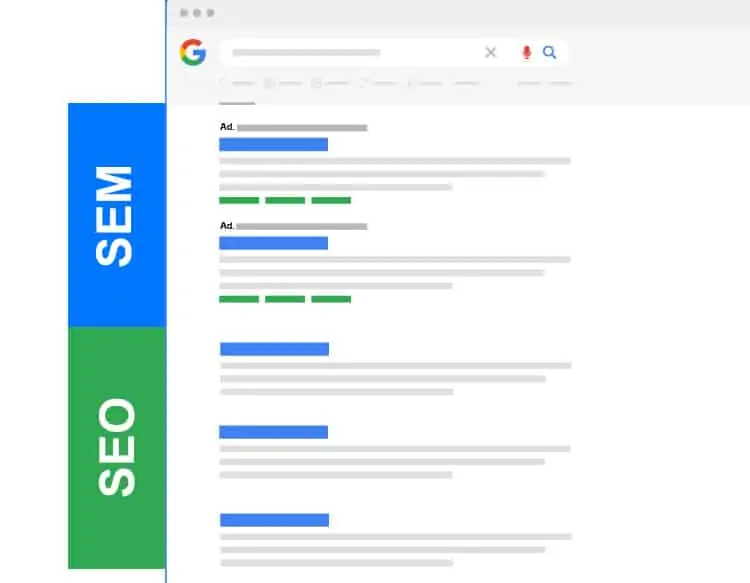
Why SEO or SEM?
Now that you are clear on the definition of SEO and SEM, then the question becomes why should you care about these 2 marketing channels and their differences.
The reason is simple.
93% of all online experiences start with a search. That means that, regardless of your efforts and different marketing channels, the people will most likely find your company by typing in some sort of query and both SEO & SEM are channels that target Google search.
Keeping that in mind, it is worth saying that as much as 75% of users never even scroll past the first page of the SERP - Search Engine Result Page. So, investing in both or either of these channels is vital for the success of the company's online presence.
Still, as necessary as it is, we can't escape the fact that people outside the industry have a pretty poor understanding of what and how SEO actually works. On top of that, buzzwords like SEM only add to the confusion.
So, let us try to sort each of the SEO and SEM, two popular digital marketing terms you will only hear more about in the following years individually for more details.
SEO Overview
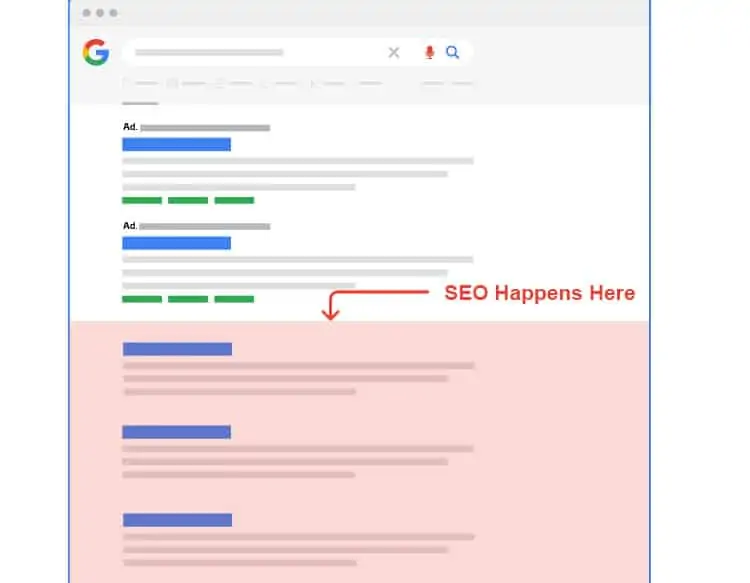
Search Engine Optimization or abbreviated SEO is about optimizing your website to appear high on the Google Search Result Page (SERP) for popular terms that users that are related to your website and also there are different types of SEO - white hat SEO, black hat SEO & etc.
Let's further break down the SEO further into the most fundamental (White hat SEO)
Essentially, the SEO lies on three main pillars:
- Technical SEO
- On-Site SEO
- Off-Site SEO
We'll quickly go through them one by one.
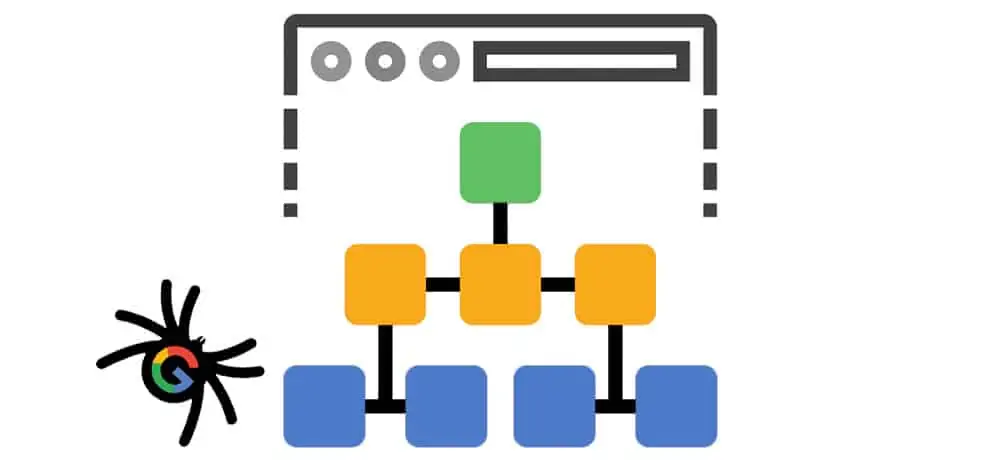
Technical SEO
Technical SEO is a term that describes the process of website structure optimization with the purpose of removing the obstacles the search engines are facing when crawling the given website. This means adjusting the website architecture, making the pages load faster, etc.
Other things that should be taken into account while performing technical SEO are as follows:
- Crawling and indexing
- Duplicate content
- Hreflang
- XML sitemaps
- Javascript
- URL structure
- Canonical tags
- 301 redirects
On-Page SEO
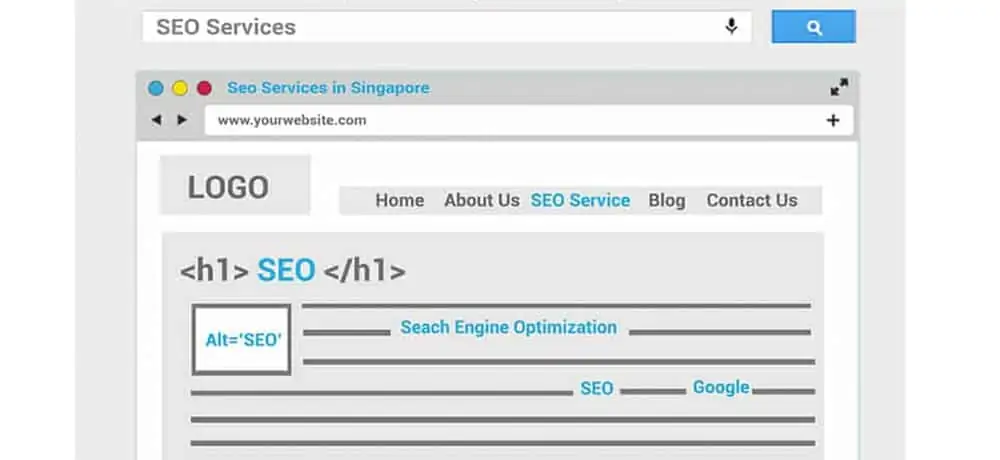
To put it simply - it's consists of optimizing the webpage content to meet the SEO standards proscribed by search engines like Google, Bing, etc.
For instance, some of the good on-page SEO practices cover activities like including the primary keyword in the title tag, URL, as well as meta description, using the correct number of H2, and H3 tags, keyword frequency, and so on.
Off-Page SEO
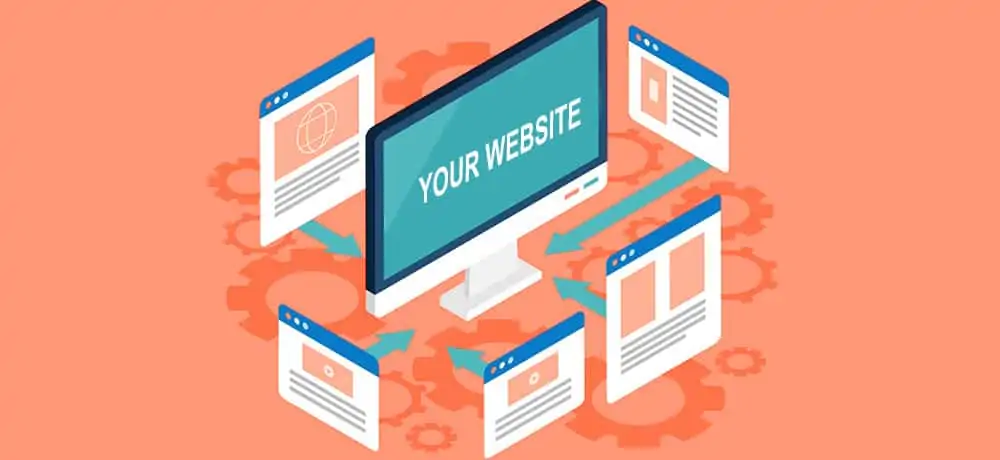
Last but not least, off-page SEO is the term that describes the process of getting references or how we like to call them backlinks from other websites. This process, essentially, increases the visibility of your website in the eyes of the search engines and is considered a staple of search engine optimization.
Off-page SEO also goes under the name "link building," which is the term you are probably more familiar with.
We have to point out, though, that the purpose of off-page SEO is not to build as many links to your website as possible but rather to make these connections count and increase the authoritativeness, expertise, and trustworthiness of your website.
SEM Overview
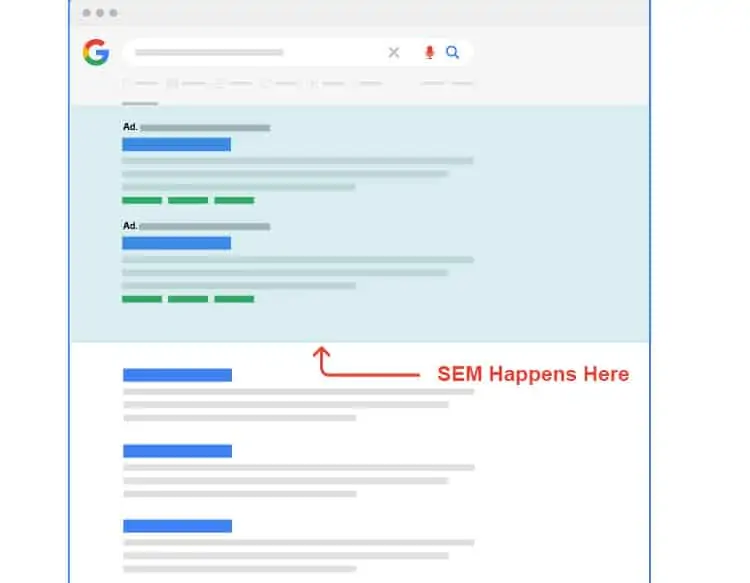
SEM as mentioned at the beginning of the article is a high-level umbrella term that includes SEO and Paid Ads or commonly known as Pay Per Click (PPC).
But as mentioned in the context of Singapore, when SEM is mentioned - it is referring to the paid ads portion of the marketing vs an umbrella term for both SEO and paid ads.
SEM is an auction-based keyword bidding system on the platform by Google that is known as Google Ads.
It involves the following components of it:
- Keywords that you want your ads to appear
- Prices that you willing to pay for each click of your ads for the keywords selected
- Ads copies
- Website Page that you want to user to land on
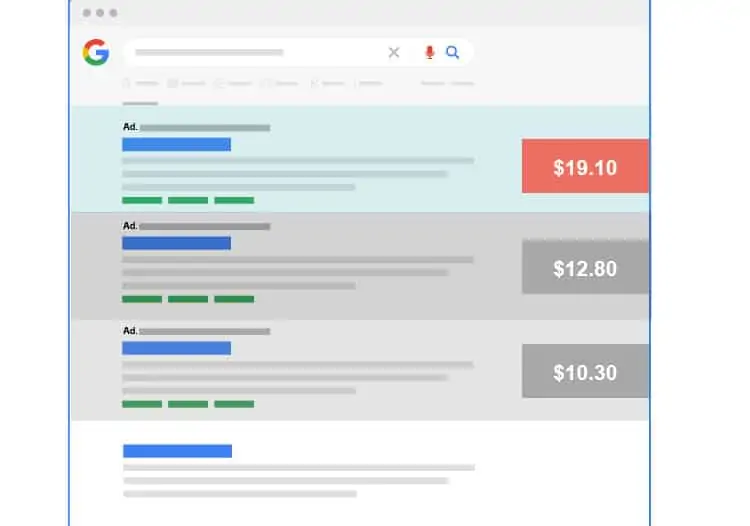
The rankings of the ads are usually proportional to how much you are bidding for the keywords. So if you’re the highest bidder, you’ll appear above all of the other ads. As you charge by each click to your ads, that is why it is also commonly known as pay per click (PPC).
What is the Main Difference Between SEO and SEM?
Speed is one of the main differences between SEO and SEM.
The fact is that SEO takes a lot of time. especially if your site is new and doesn’t have a lot of backlinks yet.
A study was done by Ahrefs (an SEO SAASS platform company based in Singapore) that it takes an average of 2 years to start ranking on Page 1. But rest assured, with a good SEO approach & best practices, you should start to see some results within a few months, and not 2 years.
While as for SEM, the moment you have your campaign set up and launch and with the right bidding amount, you can start to see your ads appearing on Google page 1.
Does SEM affect SEO?
No, SEM is the ads portion of the SERP and it is a different entity to SEO. It does not have any impact on your SEO results whether you do SEM or not and vice versa.
Google starts off as a search engine that provides web results to users for free, but as times move on - they came up with the Google Ads platform that allows the advertiser to appear on Google page #1 even if they do not do SEO. These 2 entities do not intertwine and it is a common misconception.
Why Do SEO if it is so slow?
If SEO takes so long to get the results, then why should you still invest in it. Below are some of the main key benefits of SEO:
1 - SEO Creates Better User Experience
This is one of the things we tend to overlook when we boil down the conversation to sheer stats and numbers. But, be that as it may, quality user experience is one of the main factors keeping the visitors engaged with your website.
All of the efforts aimed at improving SEO rankings also provide the audience with easy-to-navigate web pages, mobile-friendly access, and relevant information, which are great assets in their own right.
2 - SEO - The Primary Source of Leads
Yes - to this date, SEO is considered to be the primary source of leads in the entire digital marketing backyard both in regards to B2B (Business to Business) and B2C sector (Business to Customer) sector.
And not only that - leads from search engines have a 14.6% close rate. In comparison, outbound leads like cold-calling, and direct mail never climbs past 1.7%.
3 - SEO Promotes More Efficient Cost Management
According to recent research published by Search Engine Journal, inbound leads produced by search engine optimization feature up to 61% lower costs compared to the outbound leads.
The cost-effectiveness of SEO can be observed from yet another standpoint relevant to our conversation. Namely, if you occupy the top spot in the SERP for many relevant queries, the necessity of investing in paid ads becomes nearly obsolete. That moves a lot of pressure off your marketing budget.
4 - SEO Encourages the Users to Visit the Physical Store
Once again, we will have to back up our claims with numbers. Namely, one of the recent studies points out that 81% of consumers conduct online research before visiting the local store and making the purchase.
This is good to know because, in this case, the same process - online research - opens up the venue for two different types of customer engagement.
5 - SEO Increases the Credibility of the Company
Ranking high on the Google SERPs gives the impression that your company is at the top of its game and dominating the industry.
Also, if you engage in content strategy, you can turn your professional website from a marketing and sales platform to a valuable source of information people will be inclined to go back to even when they don't have the intent of making the immediate purchase.
Paid methods like PPC SEM don't offer the same results or impressions to the searchers.
SEO and SEM - Which One to Use
Ok, by now, we have established a clear explanation of SEO and SEM and some of the common misconceptions.
Which one should you ultimately use? Well, the answer is not that simple and can't be reduced to the "SEO vs. SEM" argument we started this article with.
But below of simple tables that highlight the key difference between the 2 of them.
Differences | SEO | SEM |
|---|---|---|
Where it Appears | Appear below the SEM Ads and has featured snippets | Include "Ad" designation and has ad extensions |
Cost | FREE if you know how to do it yourselves | Expensive as you have to pay for each click |
Result | Take Times | Appear Immediately |
Page 1 Visibility | All the times if SEO is done Right | Limited by Daily Budget. Once Budget is spent, your ads stop appearing |
Run Promotions | Not Ideals as Its takes time to Reflect | Great for it as it can easily do A/B Testing |
When to Focus on SEO?
You Are Going for Informational Keywords
People can get very creative when they use search engines. That is why some of the most popular keyword terms include the likes of "what is", "how to," and so on. As you can guess, these phrases are not very productive in terms of conversion rate and make a horrible match for SEM and PPC efforts.
Unlike SEM, though, these informational phrases make an excellent foundation for writing quality SEO content which can "break the ice" for potential customers who are in the consideration stage.
You Are Running on a Short Budget
Some people like to think about SEO as free access to organic website traffic. That couldn't be further from the truth - in the world of digital marketing there is no such thing as free website traffic.
But, when we look at the overall state of things in the SEM corner of the market, it is hard to deny that SEO scores rock-solid ROI. At least compared to paid-per-click results.
What numbers are we talking about? Some estimations say that for every dollar you invest in your SEO campaigns, you are getting $22.24 back.
You Have Enough Time on Your Disposal
This is one of the key considerations you have to keep in mind while thinking of leveraging the numerous benefits of SEO. Making your website appealing to modern search engines takes time - in most cases, 6-12 months.
If you can't allow yourself this commodity, you should probably try your like with SEM or some of the other search marketing channels.
When to Focus on SEM or PPC?
You Want Immediate Results and Have Additional Marketing Budget to Spare
One of the great things about paid search is that your estimated expenses are pretty stable, so budgeting this side of the SEM coin shouldn't really be a problem as long as you have a consistent ad budget on disposal.
Also, the results you are getting are as immediate as they go. Just pay the ads, and the search engines will start putting your keywords at the top of the SERP at that very moment.
You Can Launch and Test Numerous Landing Pages
This fact is due to the very nature of the PPC. Namely, the paid SEM requires that you need a targeted landing page for each ad. So, if you want your paid SEM campaign to take full swing, you need to be able to quickly launch and test dozens of different web pages.
You Are Able to Manage Google Ads Campaigns
Setting up an SEM campaign in the Google Ads platform is not complex and is something that you can easily do yourself after a better of learning it.
However, in reality, running an Adword campaign is all but simple. If you want to take full advantage of this SEM corner, you need to be able to manage keyword targeting, spend countless hours researching conversion rates and ROI, and process a staggering amount of data.
Or, pay someone to do this for you.
In either of the cases, paid SEM does bind considerable resources to be used efficiently.
SEO vs. SEM - When to Use Both of Them
This is a somewhat complicated question since, as long as you can afford it, doubling down on your marketing efforts can cause very little harm.
The easy answer would be to take a good look at all the considerations we have covered while discussing SEO and SEM and find some middle ground between them.
Good Searches per month for your Products or Services?
If your customers are searching for what you offer, then it should be a no-brainer to engage both SEO & SEM to target the users to drive more long-term traffic growth & also promotion-related ads.
No Online Presence
If your company has little to no online presence, you should run with "all guns blazing" and use all the advantages both SEO & SEM has to offer. After all, most users started off with a search to look for information on products or services.
Marketing Budget
If your company has enough marketing budget, SEO will help to drive a bulk amount of traffic to your side in the long term while SEM can help to supplement traffic as SEO build up. SEM is also good for testing new promotions.
Conclusion
And now that we have thoroughly covered all things SEO and SEM, we can conclude that these two terms don't necessarily have to be pitted against each other. So, when you start creating your next online marketing campaign, avoid thinking in terms of "SEO vs. SEM" and see how these two approaches can benefit each other as it is definitely beneficial to engage both SEO campaigns & SEM campaigns.
Use our free SEO audit tool to get a quick overview of where your website stands today!

